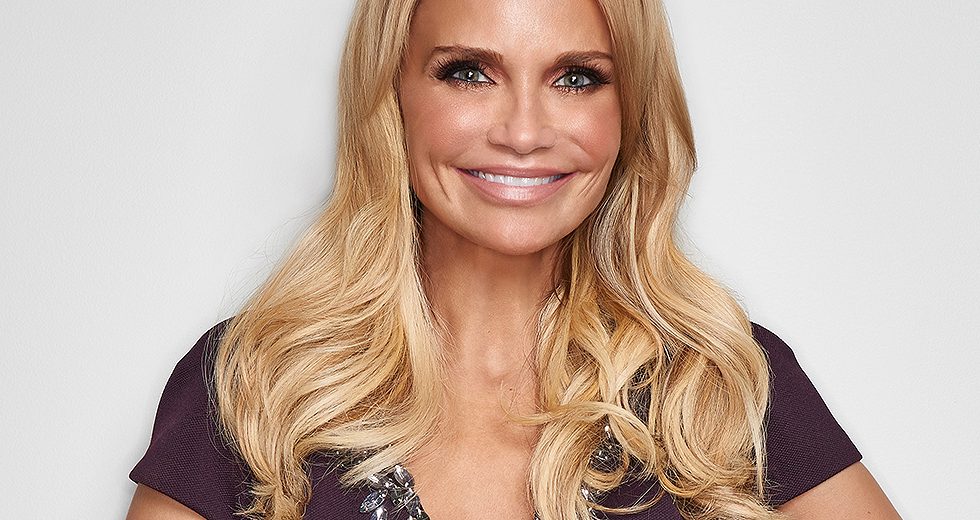
Kristin Chenoweth has not done it all. Yet.
But with a career spanning stage, television, film and even books, she definitely is getting it done. She’s the voice of Rosetta in the “Tinker Bell” film series and Fifi the love poodle in “The Peanuts Movie.” She’s the quirky April Rhodes in “Glee” and Olive Snook in “Pushing Daisies” (for which she won an Emmy Award). A Wikia search of “Chenoweth” will reveal just how big this 4-foot-11 star is in the fandom universe.
She’s also a trained coloratura soprano and has performed on the stages of the Metropolitan Opera, Broadway and beyond. Notable roles include Cunégonde from Candide, Glinda the Good Witch from “Wicked” and Sally in “You’re a Good Man, Charlie Brown” (which brought her a Tony Award) . She has paid tribute to famous leading ladies in “The Dames of Broadway … All of ’Em!!!” at Lincoln Center (and on PBS) and touring with her one-woman revue. She’s written her life story, thus far (A Little Bit Wicked: Life, Love and Faith in Stages). A video of her rendition of the “Game of Thrones” theme song just went viral on Twitter.
She’s doing all of it!!!
Chenoweth will bring a sampler of her career high notes to Chicago when she headlines the CSO’s annual Corporate Night fund-raiser June 20 at Symphony Center. The event supports the orchestra’s operations and education and community engagement programs.
As an email interview affirms, Chenoweth is grateful to her supporting cast in life, inspired by the work of yesterday’s stars and compelled to share what she can with the artists of tomorrow.
In your work, you touch on important relationships in life: “Fathers and Daughters” (the song from your 2011 album, “Some Lessons Learned”), mother and son (in your new film “Hard Sell”), mother and daughter (your tribute in the book A Letter to My Mom, and playing Maleficent in Disney’s “Descendants”). What are you discovering about yourself in this exploration?
The relationship between parent and child is one of the most important. I have a close relationship with both of my parents, and they’re very different. The respect I have for what they’ve taught me is enormous. I’ve seen them stumble, too, and learn from their mistakes. Invaluable. That’s why I love singing about it.
What do you look for in a character before you agree to take on that role?
I always look to see if it’s something I’ve done before, since I do not like to repeat myself. I can honestly say every character has been different. Yes, the inner core of me is in each role but all very different.
You’re known for doing Broadway classics — revivals and revues. How do you make those performances your own, and go beyond tributes?
I always want to pay homage to the originator. But I must make any role I play my own. I purposefully do not watch performances of those who have gone before me when I am re-creating Recently, I played a role Madeline Kahn did, “On the Twentieth Century” [from 1978-79]. [I was a child] when she performed in it but I definitely know she has been a huge influence. I hope she looked down and smiled.
In a recent interview for Architectural Digest, you mentioned the importance of “home and community.” Those issues must be a huge challenge for anyone who also wants to succeed in show business. How do you pull that off while staying grounded?
I stay close to the people who have known me the longest. I have a strong group of people who love me for me. That’s how I do it. I don’t forget where I’m from.
Talk a bit about the arts center in your hometown of Broken Arrow, Okla., where you support educational outreach and master classes with touring artists, after-school and summer arts camps, scholarships, community programs and opportunities for students to perform nationally.
They opened a performing arts center and called the theater the Kristin Chenoweth Theater. This summer is our second summer arts camp, and I’ll be there for it!
From your experience as a teacher: What’s the hardest lesson for today’s young artists to grasp?
Never stop working at your craft. Ever.
What have you drawn from your own experience to help them master it?
Experience has taught me a lot. I’m in my 40s now, so it’s my job to teach the babies what I know and what I’ve learned.
Now you’re bringing your talents to Symphony Center for a concert to support the programs of the Chicago Symphony Orchestra. Give us a quick preview.
It’s all of it – from country to opera and musical theater and maybe even some Prince.
Joe Pixler is a Chicago-based writer and editor.